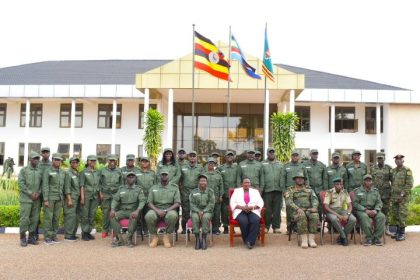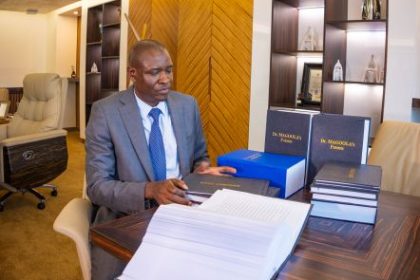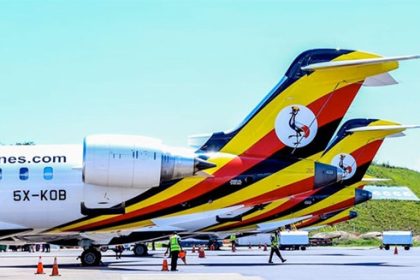IATA report shows aviation contributes USD 160m to Rwanda’s economy, supports 42,000 jobs
 The IMF, despite the resilience of the Rwandan economy, believes the fiscal position will be under pressure from the large infrastructure investment in the New Kigali International Airport and the expansion of RwandAir, as well as the recent pension reform.
The IMF, despite the resilience of the Rwandan economy, believes the fiscal position will be under pressure from the large infrastructure investment in the New Kigali International Airport and the expansion of RwandAir, as well as the recent pension reform.
Rwanda’s aviation sector is consolidating its role as a key driver of economic transformation, contributing more than USD 160 million to GDP and supporting 42,000 jobs, according to a new report by the International Air Transport Association (IATA).
The Value of Air Transport study, launched on the sidelines of the Aviation Africa Summit in Kigali, underlines aviation’s broad impact on Rwanda’s development agenda. In 2023, aviation and related tourism accounted for 1.1 percent of GDP, while airlines and airports facilitated the movement of 16,500 tonnes of cargo.
“Rwanda has made aviation central to economic and social development, with the sector contributing USD 160 million to GDP and supporting 42,000 jobs,” said Kamil Alawadhi, IATA’s Regional Vice President for Africa and the Middle East. “By integrating aviation into its tourism strategy, investing in modern infrastructure, and meeting global safety standards, Rwanda has built a competitive and resilient industry that is driving growth and connectivity.”
Alawadhi praised Rwanda’s early adoption of advanced passenger data systems (API-PNR), describing it as a best-practice model for the continent. At the same time, he urged Kigali to stay focused on three strategic priorities: cost-efficient infrastructure, workforce training, and regional connectivity.
He pointed to the Bugesera International Airport project, developed under a Public-Private Partnership (PPP), as an opportunity to prioritize long-term socio-economic benefits over short-term gains. He also welcomed the establishment of the Rwanda Civil Aviation Training and Innovation Centre, which is expected to build the skilled workforce needed for future growth.
On connectivity, Alawadhi highlighted Rwanda’s liberal visa policies, which have made it one of Africa’s most accessible destinations, alongside its early commitment to the Single African Air Transport Market (SAATM), participation in ICAO’s sustainable aviation fuels (SAF) program, and voluntary alignment with the global carbon offsetting scheme, CORSIA.
“By maintaining this momentum, Rwanda is building a bright future for itself and taking on a leadership role for the African continent,” he said.
IATA data further shows Rwanda’s international air traffic accounted for 95 percent of total origin-destination departures in 2023, equal to 447,400 passengers. Africa remains the largest market, with 249,800 departures to other African countries (56 percent of the total), followed by Europe (21 percent) and North America (11 percent).
Nairobi topped the list of destinations with 56,500 passengers (12.6 percent), followed by Entebbe with 28,300 (6.3 percent), Brussels with 25,100 (5.6 percent), Johannesburg with 19,200 (4.3 percent), and Dubai with 18,500 (4.1 percent). Other popular routes included Lagos, Paris, Dar es Salaam, Bujumbura, and London.
The study emphasizes that connectivity is fundamental to economic development, enabling industries across Rwanda to integrate into global markets, stimulate tourism, and attract investment.


 Government reaffirms commitment to capitalise UDB as Bank deepens development finance role
Government reaffirms commitment to capitalise UDB as Bank deepens development finance role
 Uganda’s DEI Biopharma gene therapy breakthrough could transform sickle cell treatment
Uganda’s DEI Biopharma gene therapy breakthrough could transform sickle cell treatment
 Equity Bank Uganda set to close 2025 on firmer footing as clean-up phase gives way to growth
Equity Bank Uganda set to close 2025 on firmer footing as clean-up phase gives way to growth
 Stanbic targets wider access to affordable financing with ‘Oli In Charge’ campaign
Stanbic targets wider access to affordable financing with ‘Oli In Charge’ campaign
 USA–Canada certification dispute could expose Uganda and regional airlines to regulatory risk
USA–Canada certification dispute could expose Uganda and regional airlines to regulatory risk
 Sumsub launches AI Agent Verification as Africa grapples with surge in AI-driven fraud
Sumsub launches AI Agent Verification as Africa grapples with surge in AI-driven fraud